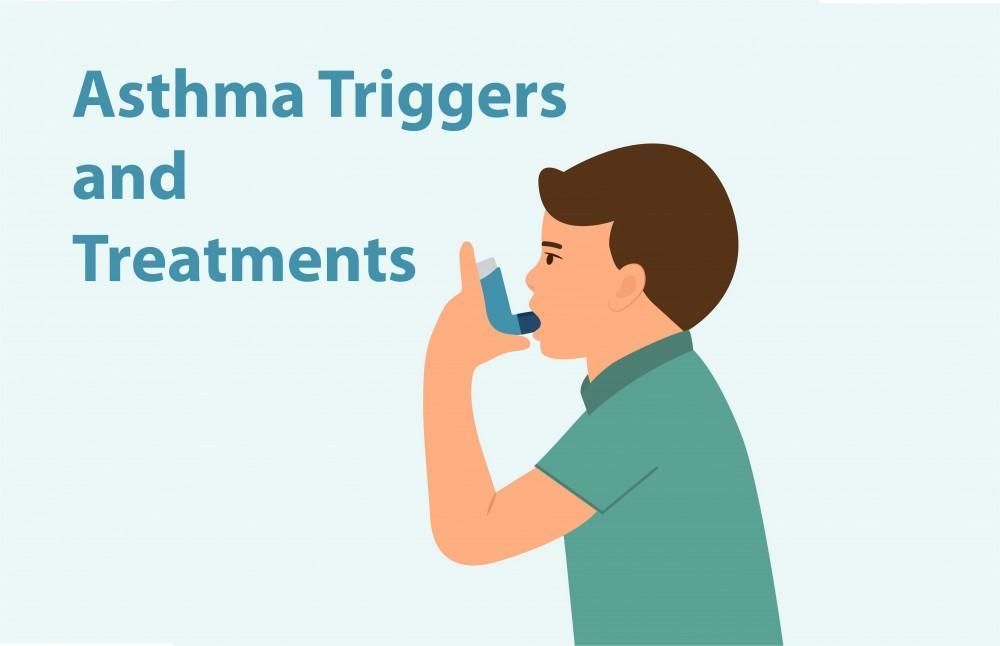Asthma Triggers and Treatments
We continue our Asthma and Allergy awareness month series discussing trigger avoidance and treatment options for asthma. With proper control patients with asthma should be able to do what others without asthma are able to do!
Trigger avoidance
As was mentioned in our last blog, the foundation of good asthma management is avoidance of triggers. It is important to understand what triggers asthma and what steps to take to avoid them.
Year-Round and Seasonal Triggers
Many patients with asthma will have allergies, which can trigger their asthma.
These allergy triggers can be subdivided into year-round triggers and seasonal triggers:
Year-round triggers may include:
- Dust mites
- Animal skin flakes (dander)
- Cockroaches
Seasonal triggers may include:
Here in San Antonio, mountain cedar and oak pollen specifically will cause many patients to experience asthma symptoms, but symptoms can occur with any pollen that a patient is very sensitive to.
Other potential triggers include:
- Tobacco smoke is an irritant that can trigger asthma, particularly in a car or at home. Similarly, strong odors/fumes, pollution, or weather changes can be triggers.
- Infections such as viral upper respiratory infections (Colds, Flu, Covid-19, etc.) or bacterial sinusitis can trigger asthma.
- Intense exercise or exposure to cold air.
- Acid reflux does not always present as heartburn. Many patients will have what is called “silent reflux” where they do not describe classic heartburn symptoms. Stomach acid can be very irritating to the airways of asthmatics.
- Certain medications, such as aspirin or NSAIDs (i.e.-ibuprofen) may trigger asthma in sensitive patients. Medications used to treat heart disease and high blood pressure (beta-blockers) can interfere with medications for asthma.
- Certain foods may trigger asthma in sensitive patients within several minutes to an hour after eating it. If you suspect such a food, you should avoid it and speak to a certified allergist.
- Stress or anxiety may also cause asthma symptoms. Minimizing stress with proper rest, diet and exercise can help to better control asthma symptoms.
Treatment
Individualized treatment is the goal for each unique patient with asthma. Just like everyone’s triggers can vary, what may work for one patient with asthma could leave another with poor control and frequent symptoms. Remember, patients with asthma should be able to do what others without asthma are able to do. Asthma is also a very dynamic disease, meaning that what works to control a patient’s asthma now, may not work as well months to years from now, or alternatively, a patient may be able to control asthma with less medication at some point in the future. “Good control” for asthma generally means use of a rescue medication less than twice weekly (apart from exercise), less than two nights per month of awakening due to cough or wheeze, and less than two oral steroid courses per year prescribed for breathing issues.
Rescue medications
There are two medicines in this category: bronchodilators and steroids (oral or systemic).
Bronchodilators, such as albuterol or levalbuterol, open up the airways so more air can enter. Anticholinergics, such as ipratropium, can also be considered here, although they work with the albuterol to prevent the airway from closing.
Steroids, whether taken by mouth (oral) or by injection (systemic), work more slowly to decrease inflammation and mucous production that can occur in the airways.
Controller medications
Typically, these medications are taken daily to prevent symptoms, but some flexibility is given in the new asthma treatment guidelines to offer therapy for certain patients as needed. Again, your allergist will customize your therapy to meet your particular needs.
Inhaled corticosteroids can help control the inflammation that occurs in the airways of most asthma patients. There are several different inhaled steroids, but generally the inhaled dose is much smaller than the steroid pills and the medication mainly stays in the lungs rather than being absorbed and traveling to the rest of the body. What this means is that side effects of the inhaled forms tend to be much milder than with the oral steroids.
Inhaled long-acting bronchodilators can help to keep airways open for 12 to 24 hours. These are typically paired with an inhaled steroid, due to risks in some patients. Similarly, long-acting anticholinergics can help to reduce airway closure for 12 to 24 hours. These may be helpful to add to the bronchodilator/steroids or may be used as an alternative to the bronchodilator if side effects are a problem.
Leukotriene modifiers, such as the commonly prescribed montelukast, can help to open airways a small amount and have some specific benefit in exercise-triggered asthma. There has been recent concern by the FDA for potential side effects with these medications, and your doctor can discuss those risks with you.
Biologics
A specific class of medications called biologics has grown dramatically over the past twenty years. These medications are reserved for more moderate-to-severe asthma patients who are poorly controlled on their typical medications and have largely been shown to reduce the number of steroids asthma patients will need in a year, as well as reduce ER visits and hospitalizations. As of this writing, there are six biologic options for asthma, and several more undergoing intense research trials. Specific characteristics of asthma help allergists determine which biologic is the best choice for the individual asthma patient. Biologics generally have far fewer side effects than oral or injectable steroids because they target a specific point in your immune system that triggers asthma.
Allergy Shots
Allergy shots are another treatment option that is not a medication. If the allergist determines significant allergies are triggering asthma symptoms, this may be an option worth considering. Allergy shots work to get at the underlying cause of asthma by desensitizing the immune system and are the only “disease modifying” therapy available. Allergy shots may not be an option for more severe asthma patients, given a small but potentially significant risk of having an allergic reaction. Completion of an adequate course of allergy shots may lead to long-term benefit even after stopping the allergy shots in most patients.
This blog is for informational purposes only and is not intended to replace evaluation by a physician. If you have questions or medical concerns, please
schedule an appointment to discuss with Dr. Stahl, or a certified allergist near you.






